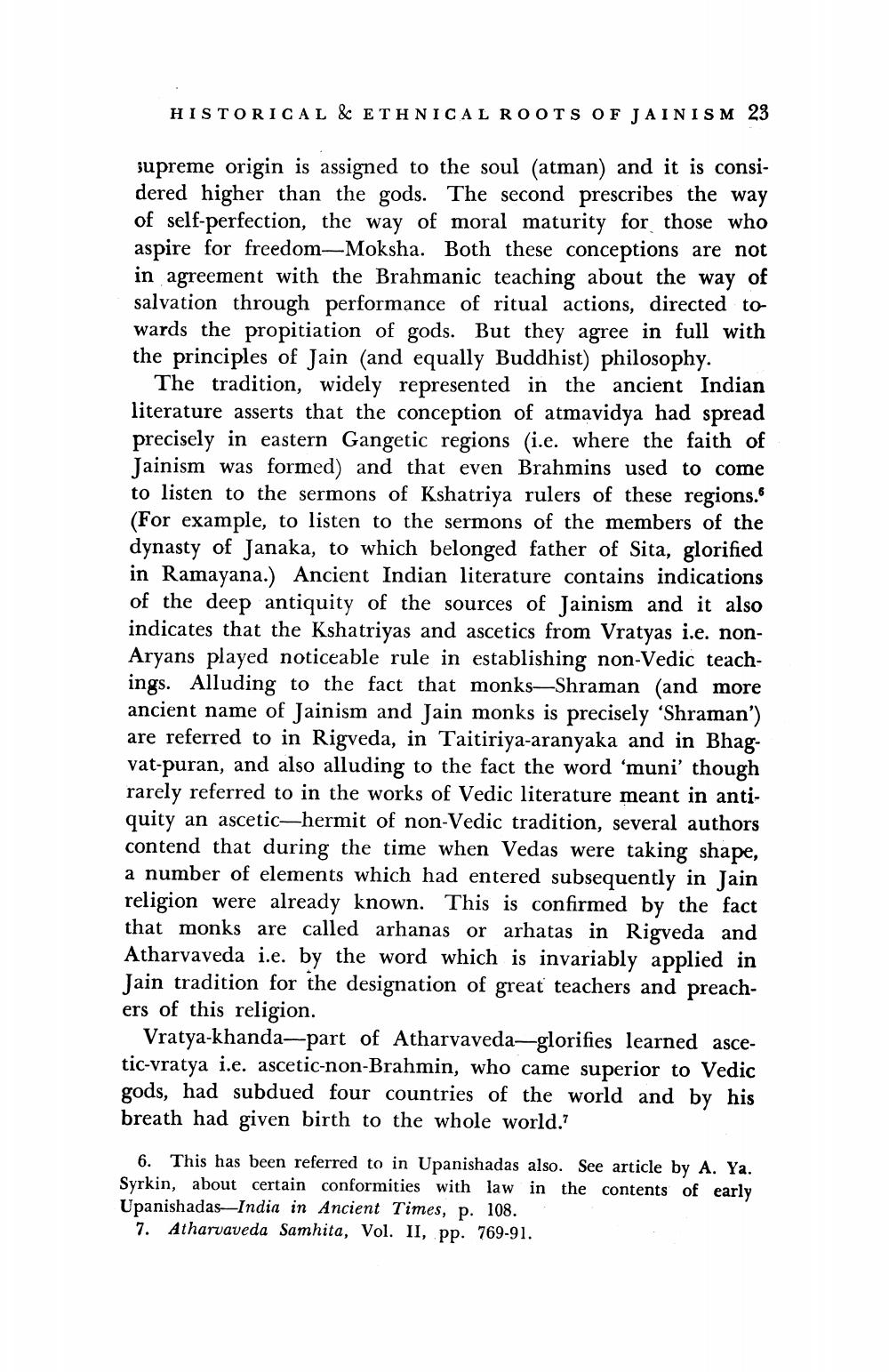________________
HISTORICAL & ETHNICAL ROOTS OF JAINISM 23
supreme origin is assigned to the soul (atman) and it is considered higher than the gods. The second prescribes the way of self-perfection, the way of moral maturity for those who aspire for freedom-Moksha. Both these conceptions are not in agreement with the Brahmanic teaching about the way of salvation through performance of ritual actions, directed towards the propitiation of gods. But they agree in full with the principles of Jain (and equally Buddhist) philosophy.
The tradition, widely represented in the ancient Indian literature asserts that the conception of atmavidya had spread precisely in eastern Gangetic regions (i.e. where the faith of Jainism was formed) and that even Brahmins used to come to listen to the sermons of Kshatriya rulers of these regions. (For example, to listen to the sermons of the members of the dynasty of Janaka, to which belonged father of Sita, glorified in Ramayana.) Ancient Indian literature contains indications of the deep antiquity of the sources of Jainism and it also indicates that the Kshatriyas and ascetics from Vratyas i.e. nonAryans played noticeable rule in establishing non-Vedic teachings. Alluding to the fact that monks—Shraman (and more ancient name of Jainism and Jain monks is precisely 'Shraman') are referred to in Rigveda, in Taitiriya-aranyaka and in Bhagvat-puran, and also alluding to the fact the word ‘muni' though rarely referred to in the works of Vedic literature meant in antiquity an ascetic-hermit of non-Vedic tradition, several authors contend that during the time when Vedas were taking shape, a number of elements which had entered subsequently in Jain religion were already known. This is confirmed by the fact that monks are called arhanas or arhatas in Rigveda and Atharvaveda i.e. by the word which is invariably applied in Jain tradition for the designation of great teachers and preachers of this religion.
Vratya-khanda--part of Atharvaveda-glorifies learned ascetic-vratya i.e. ascetic-non-Brahmin, who came superior to Vedic gods, had subdued four countries of the world and by his breath had given birth to the whole world.
6. This has been referred to in Upanishadas also. See article by A. Ya. Syrkin, about certain conformities with law in the contents of early Upanishadas—India in Ancient Times, p. 108.
7. Atharvaveda Samhita, Vol. II, pp. 769-91.




